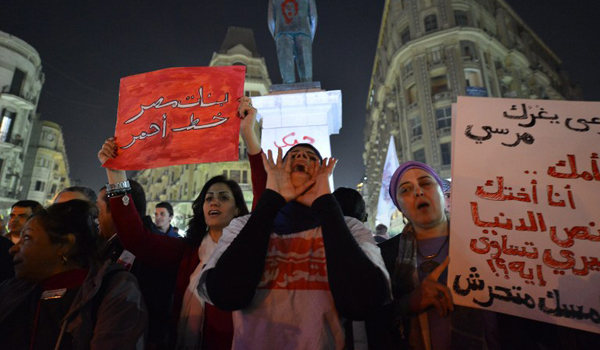CAIRO: The Supreme Administrative court upheld on Jan. 6 a ruling issued by the political parties committee rejecting the applications of 12 groups for official recognition and status.
They said the Supreme Administrative Court ruled that the 12 groups fell short of meeting new requirements to set up political parties in Egypt.
The rules require any party to obtain at least 1,000 signatures from its founding members to gain recognition.
At least 50 signatures should come from members in each of 10 provinces nationwide.
After the ruling some of the founders of El-Wasat El-Gadid (The New Medium) and El- Karama El-Arabia (Arab Dignity), two of the 12 rejected groups, demonstrated in front of the court to denounce the verdict.
In Egypt, no party can be legally established without the approval of the political parties committee of the Shoura Council – the upper house of parliament.
The Supreme Administrative Court is the last step in the process of forming a political party. The court s decision is final and there is no other side or organization capable of challenging it.
Nabil Abdel Fattah, Political Analyst in Al Ahram Center for Strategic and Political Studies, completely disagrees with the procedures used in establishing a party in Egypt.
Any political party should be able to exist as long as it is not based on religion, gender or race and that is in order to protect the national structure of culture in Egypt, Abdel Fattah said.
In May 1980, the Egyptian constitution was amended to allow a multi-party political environment.
Article 5 of the constitution states: “The political regime of the Arab Republic of Egypt is based upon the multi-party system within the framework of the basic principles and components of the Egyptian society stipulated by the Constitution. Political parties shall be organized by law. Abdel Fattah urges the government to cancel the parties committee saying that by the presence of that committee the government is the one who is choosing its competitors.
Political parties, which existed in mainstream Egyptian life since the 19th century, have come and gone but some have endured British rule, revolution and wars. Currently, there are six major parties including the ruling National Democratic Party, the opposition Wafd Party and opposition Al Ghad, to name a few.
The Muslim Brotherhood, which is not a party and has been officially banned, forms a large bloc in Parliament with its MPs sitting as independents.
Law 40 of 1977 prohibits the formation of religious-based political parties, such as the Muslim Brotherhood.
But Gamal Eid, president of the Arabic Network for Human Rights Information, said the any party should have the right to exist and declare its ideologies whether it is religious, economic or social .
In previous years political groupings have accused the political parties committee of bias and caving in to NDP pressures.
Mahmoud Ezzat, Muslim Brotherhood Secretary General, had previously told The Daily Star Egypt that the parties committee is illegal and unconstitutional.
The 12 rejected parties are: Al- Amal Al-Democraty (italics)(The Democratic Hope), El- Kaoumy El-Masry (italics) (The Egyptian National), El- Kaoumy El- Hor (italics) (The Free National), El- Tahalef Al -Watny wa Al- Koumy (italics) (The United National), Nahdat Misr El- Kanana (italics) (The Egyptian Victory), El Salam El Watany (italics) (The National Peace), Nahdat Masr (italics) (Egypt s Development), El Horiya El Democratia (italics) (The Democratic Freedom), El- Karama El-Arabia (italics) (The Arab Dignity) and El -Wasat El -Gadid (italics) (The New Medium)


